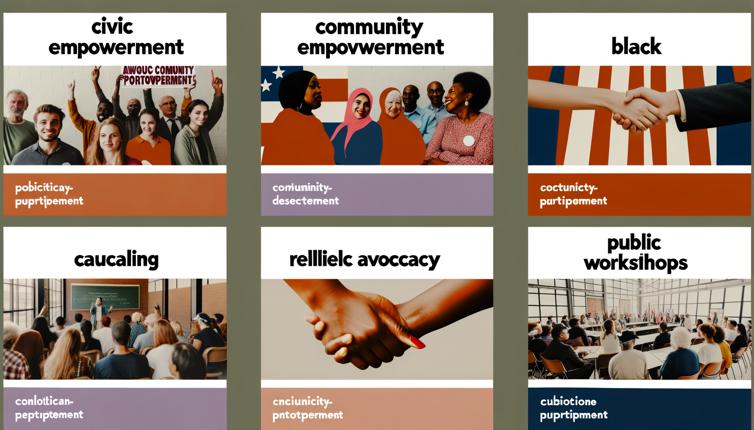Understanding Different Perspectives
Before diving into the details of political campaigns, it's crucial to develop a solid understanding of different perspectives and ideologies. This means actively seeking out diverse sources of information, engaging in respectful dialogue with people who hold different views, and being open to challenging your own beliefs.,One way to gain a broader perspective is to consume news and opinion pieces from a variety of sources, representing different political ideologies. This can help you develop a more nuanced understanding of the issues at hand and avoid confirmation bias.,Additionally, engaging in conversations with people who hold different viewpoints can provide valuable insights and challenge your own assumptions. By approaching these conversations with an open mind and a willingness to learn, you can expand your understanding and potentially discover common ground with those who hold different perspectives.
Evaluating Political Campaigns
When evaluating political campaigns, it's important to look beyond the flashy ads and slogans. Take the time to research each candidate's platform, track record, and policy proposals. Look for consistency in their messaging and carefully consider how their proposed policies align with your own values and priorities.,It's also crucial to be aware of the influence of money in politics. Research campaign financing and donations to understand any potential conflicts of interest and determine if a candidate's policies are likely to serve the interests of their donors over the general public.,Furthermore, fact-checking is an essential tool for making informed choices. Politicians often make claims that may not be entirely accurate, so fact-checking organizations can help separate fact from fiction. Look for reputable fact-checkers who adhere to rigorous standards of accuracy and transparency.
Considering Political Ideologies
Political ideologies encompass a wide range of beliefs and values, and understanding different ideologies can help you evaluate candidates and policies more effectively. Familiarize yourself with major ideologies such as conservatism, liberalism, socialism, and libertarianism, as well as their variations and nuances.,However, it's important to note that political ideologies are not monolithic. Within each ideology, there can be diverse perspectives and policy proposals. Take the time to explore the nuances and complexities of each ideology and consider how specific candidates align with your own values within those broader frameworks.,Remember that political ideologies are not mutually exclusive, and it's possible to find common ground across ideologies. Look for candidates who prioritize collaboration, compromise, and evidence-based decision-making, rather than strict adherence to a specific ideology.
Conclusion
Making informed choices in political campaigns requires active engagement, critical thinking, and a willingness to explore different perspectives and ideologies. By seeking out diverse sources of information, engaging in respectful dialogue, and evaluating candidates and policies based on your own values and priorities, you can navigate the complexities of political campaigns and make choices that align with your beliefs.








